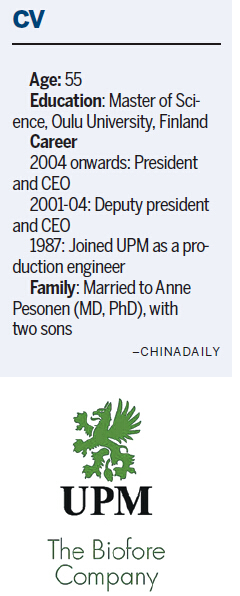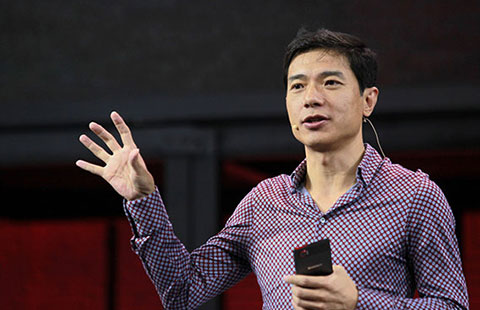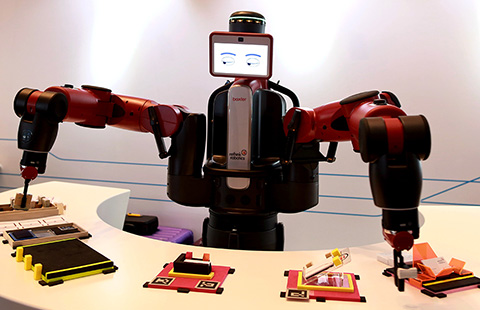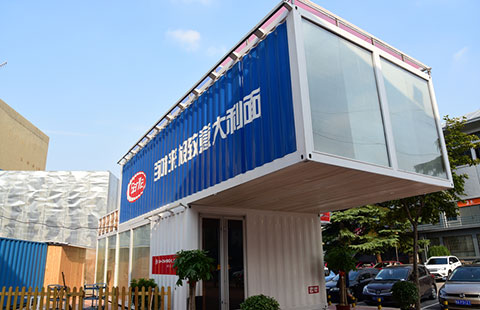Finnish paper maker driven by 'power of word'
By Wang Zhuoqiong (China Daily) Updated: 2015-09-11 10:28
Do you think the economic slowdown will have impact on your strategy in China?
To some extent, yes, especially in the way we manage our day-to-day operations, on how efficiently we can operate the mills and how efficiently we can meet and serve customers. What it means is that these things will become more of a necessity in a slowing-down environment.
When there is growth, we have more freedom in a way. But when the economy is slowing, we really need to have the basic plan in place. If the economy is going to grow, then we will have more freedom.
But on the other hand, our position in China is not restricted to the Paper Asia mills in the country, but to all the businesses.
Since we sell a lot of products here, we will continue to hold various customer events to be in constant touch with customers.
I am happy that our sales team here is well aware of the customer requirements and this will hold good for us in the long run.
What are the prospects for the industry in China?
In recent years, China's paper industry has seen rapid development in both technology and quality. But there are still several issues like the number of small-scale enterprises, high energy consumption and pollution. China is the world's largest paper producer and exporter. Fine paper demand in China is expected to grow by nearly 1.1 percent every year till 2020.
The biggest challenge is overcapacity in China's paper industry. I believe every industry will experience such a painful period, which may not be a bad thing for the entire industry. Companies will be reshuffled and consolidated to a higher level.
What do you think is the biggest challenge for UPM?
I think the global economy is by far the biggest challenge, as it has not been growing like before. If the global economy slows down, it will be the biggest challenge for all industries, and also UPM. If there is a growth, we know what to do and how to run our business to make profits.
What opportunities do you give to young talent?
There are several growth opportunities for young talent within the UPM global system, especially in research, production, sales, logistics and sourcing. Along with these skills we also look for people who have the commitment to succeed and a keen global view.
Different regions need different leaders, so there are more opportunities than limitations in our company.
What has been your most satisfactory decision?
The most important decision I made was in February 2014, about Changshu PM3, a new paper machine in Changshu, Jiangsu province. Set to start up at the end of this year, it is not only a major investment for Paper Asia, but also a big step for UPM. It is also the biggest single investment of the whole group. We are actually moving where the growth is and where the opportunities are. Obviously, in Europe there are plenty of opportunities when it comes to energy business or biofuel business.
- Finnish paper maker driven by 'power of word'
- Chinese Global Growth Companies awarded at Summer Davos
- China's antitrust law enforcement not discriminatory: official
- Chinese premier urges intl cooperation in production capacity
- Experts put health issues firmly in the spotlight of Summer Davos
- Dongfeng Nissan fined $19.2 million for violating antitrust law
- Chinese Premier urges FTA negotiation with Georgia
- Bid to tackle economy not empty talk, vows Li
















